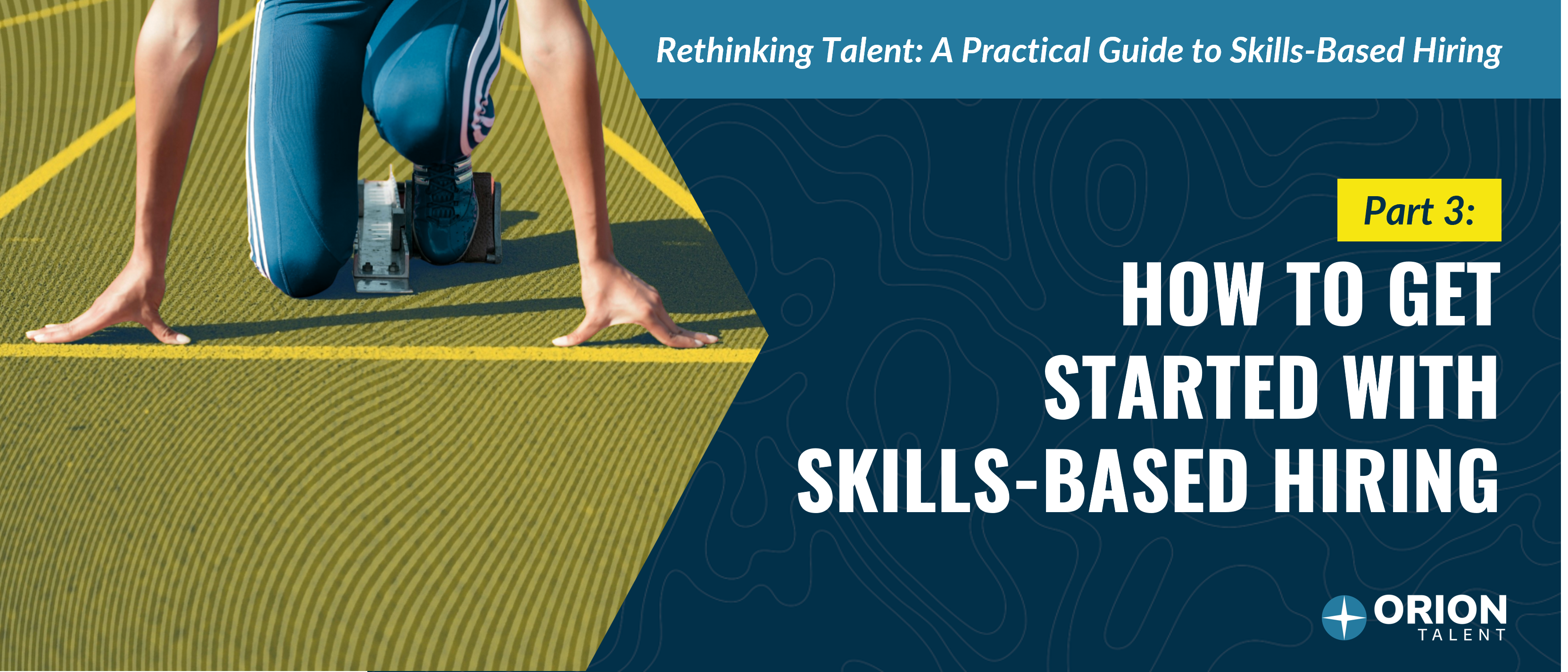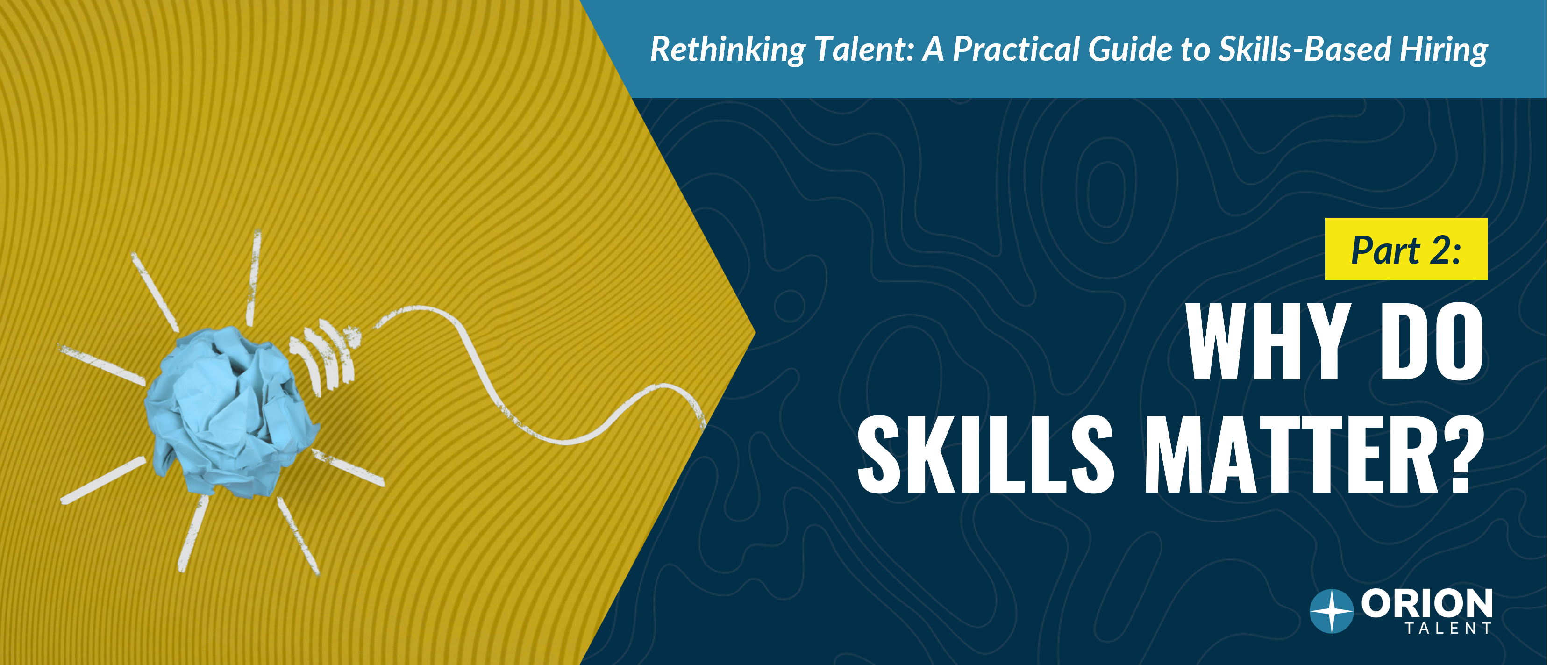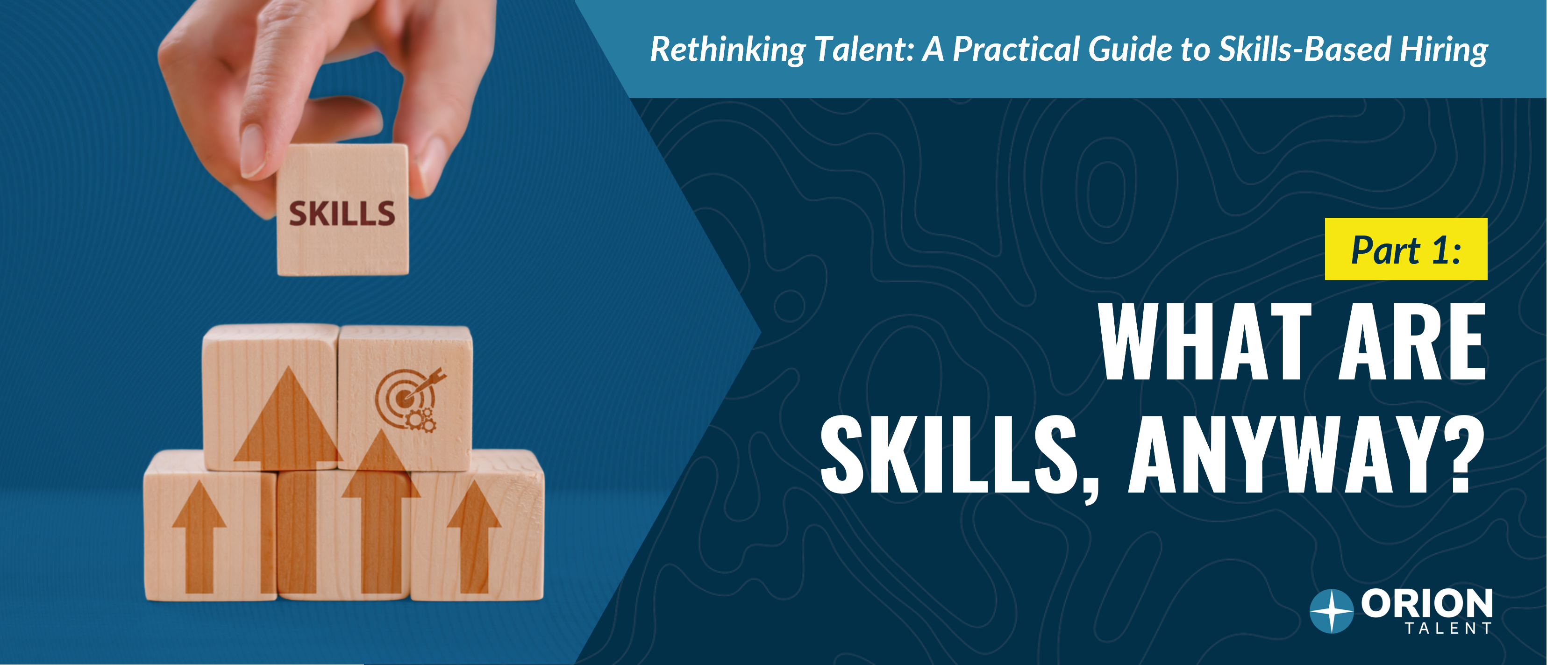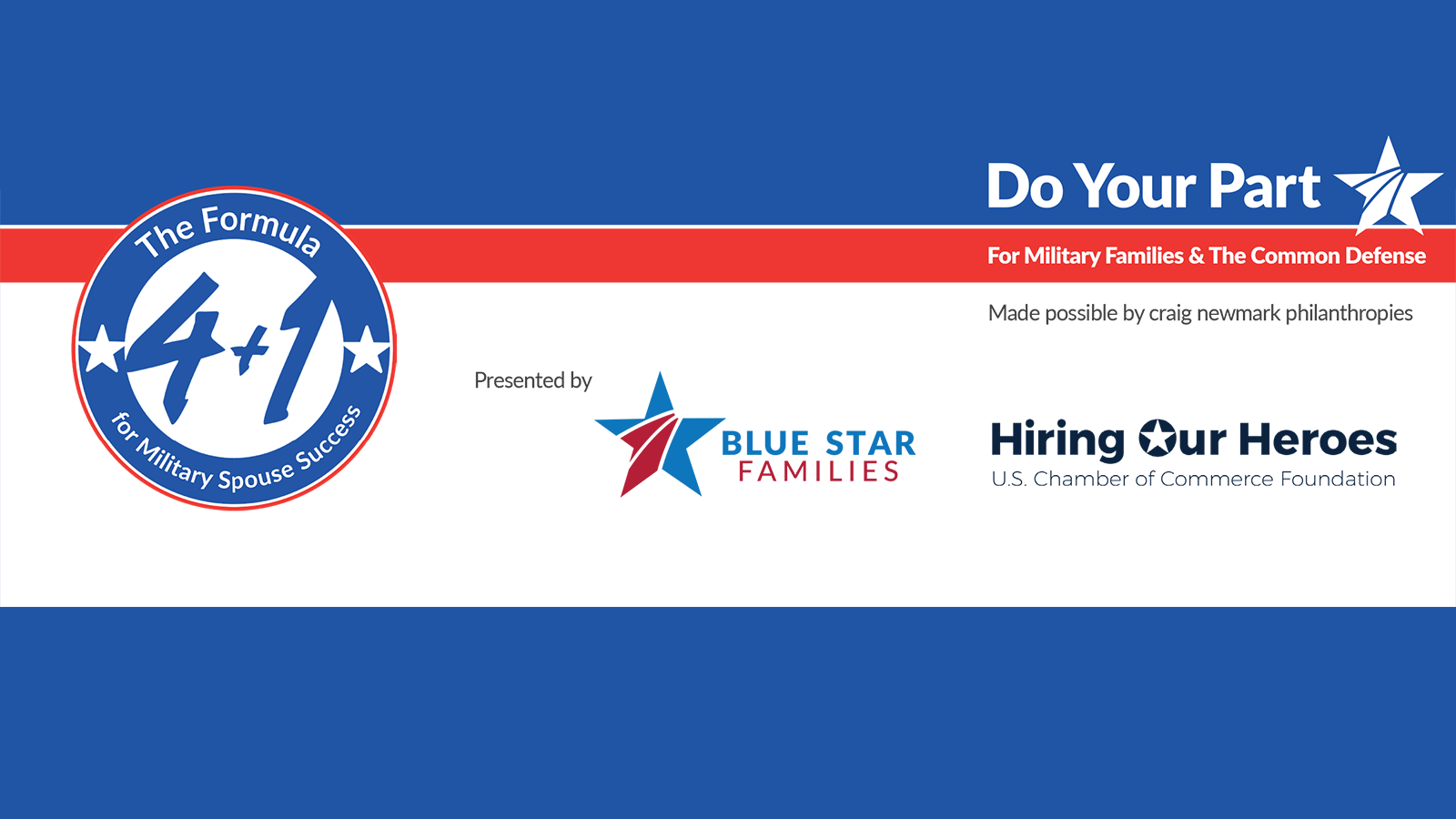.jpg)
Far too many HR leaders still believe that it really doesn’t matter how candidates feel about their hiring process. The general attitude is that if they want the job, then candidates will just have to suffer through their organization’s process — no matter how exhausting and ridiculous it might be.
While that may have been true many years ago when employers had their choice of top talent clamoring to get a job, today’s candidate-driven market is changing all that. Organizations today have to work much harder to be competitive and win over the best candidates.
So that really begs the question – What does your hiring process tell candidates about your company?
Every stage of the hiring process tells your candidates a story about your organization, what it stands for, what it’s like to work there, how much employees are valued, and if they would love or hate working there. Your recruiting team isn’t just selling an open position to candidates; they’re selling your company during every step of the process.
What is your hiring process telling your candidates? To know the answer to that question, you’ll have to try to look at your entire process from the candidate’s perspective.
Start with Your Careers Page
It’s almost certain that anyone interested in working in your organization will visit your careers page, so you’ve got to put your best foot forward. Make it a great place for candidates to begin their research into your company.
While you should obviously have an updated list of open positions on your careers page, it’s also an opportunity to really showcase what your organization is all about. Posting a 10-year-old photo of a work retreat and your mission statement just won’t cut it.
Here are some career page best practices you should consider:
- Keep your careers page updated with current images of your team.
- Use images that show your team working and playing together.
- Offer images of your employees participating in fundraisers, if you have them.
- Post a video that shows a day in the life of an employee.
- Interview employees about what it’s like to work at your organization and post the video.
- Include content that addresses your company’s core values. Video team members talking about it if you can.
- SHOW candidates what it’s like to be an employee, don’t just tell them about perks and unique office spaces.
- Address work/life balance and your organization’s philosophy about it.
- Help candidates to see employment with your company as joining a family, not just taking a job.
Manage Your Company Reputation Online
Like it or not, social sites play a huge role in your organization’s employer brand. While you can’t necessarily do anything about a bad review from a disgruntled employee, you can water down those bad comments by getting current employees to post positive comments about their experience on sites like Glassdoor and Indeed.
Managing your company’s employer brand online goes far beyond review sites and includes social media sites as well. Here are some social media best practices you should consider:
- You should also have a careers page on LinkedIn in addition to your company page. This gives you a central hub to promote your employer brand and jobs.
- Encourage employees to update their profiles on LinkedIn and ask them to add links to the company’s careers site or employer brand content.
- Ask employees to follow your company profiles within every social media platform your organization uses, including LinkedIn, Facebook, Instagram, and Twitter.
- Encourage employees to like, share, and repost your branded content to their own followers.
- Regularly post status updates on social media that highlight your brand, culture, and mission. You might even consider periodically featuring an employee in your posts.
- Create Compelling Job Descriptions
- Never underestimate the power of your job description to build your brand. In many cases, your job description is a candidate’s first exposure to your organization, and it creates the foundation for how that candidate feels about your company.
A simple bulleted list of duties just won’t cut it.
You need to not only sell the role but the organization, as well. Use descriptive language that not only explains the position but why it matters to the company and why the right person will love the job.
The Application Process
Nothing frustrates candidates more than a cumbersome and painful application process. While your applicant tracking system (ATS) makes recruiting easier for your team, it may damage how candidates feel about your organization.
Some top candidates may simply abandon their application if the ATS isn’t user-friendly or requires them to complete the same fields repeatedly. An ATS can make candidates feel like just another number or that their application enters a black hole as soon as they click the submit button – neither of which works in favor of your employer brand.
If you want to see how your ATS might be affecting your brand, try applying for a job with your organization. How did you feel about the process? Can improvements be made?
Interviews Matter to Your Brand
Whether it’s by phone or in person, candidate interviews are not only important to your hiring process, but they also can make a big impact on your brand. Interviews provide a great opportunity for candidates to vet your organization beyond what they can learn from online research.
If you’re unprepared, haven’t read the candidate’s resume, and pummel them with questions, your candidate won’t leave the interview with a positive image of your organization. Here are some best practices to make sure that doesn’t happen:
- Review the candidate’s resume before you talk to them, not as you’re conducting the interview.
- Have your questions prepared in advance.
- Be prepared to discuss the position in more detail.
- Make the agenda clear at the beginning of the interview and make sure they know what the next steps in the process will be.
- Keep your interview conversational so it doesn’t feel like an inquisition.
- Skip questions that are clearly stated on the resume.
- Allow candidates to ask questions.
- Make sure hiring managers, or those who will be conducting in-person interviews, have been coached on how to conduct an effective interview.
- Communication Throughout the Process
- Your communications with candidates throughout the hiring process, whether via email, phone, or in person, tell candidates a lot about your organization. Poor communications can tell candidates that your company is disorganized, apathetic, or disrespectful, and that you probably treat employees the same way.
Obviously, that does serious damage to your employer brand.
Candidates expect to be kept informed at each stage of the hiring process. Always be clear about the next steps, let them know about changes in the hiring timeline, and notify them when they won’t be moving forward with your organization. While some of this will occur over the phone, be sure to use email best practices if you’re communicating via email.
Conclusion
It’s clear that every stage of the hiring process tells candidates something about your organization. Your goal throughout the process is to make sure that you’re painting an accurate picture of your company, what it stands for, what it’s like to work there, and how much employees are valued.
Ultimately, your aim is to make them really want to work for your organization and know that they would love it.
So… What does your hiring process tell candidates about your company?
Archives
- February 2026
- January 2026
- December 2025
- November 2025
- October 2025
- September 2025
- August 2025
- July 2025
- June 2025
- May 2025
- April 2025
- March 2025
- February 2025
- October 2024
- May 2024
- March 2024
- February 2024
- January 2024
- December 2023
- November 2023
- October 2023
- September 2023
- August 2023
- July 2023
- June 2023
- May 2023
- April 2023
- March 2023
- February 2023
- January 2023
- December 2022
- November 2022
- October 2022
- September 2022
- August 2022
- July 2022
- June 2022
- May 2022
- April 2022
- March 2022
- February 2022
- January 2022
- December 2021
- November 2021
- October 2021
- September 2021
- August 2021
- July 2021
- June 2021
- May 2021
- April 2021
- March 2021
- February 2021
- January 2021
- December 2020
- November 2020
- October 2020
- September 2020
- August 2020
- July 2020
- June 2020
- May 2020
- April 2020
- March 2020
- February 2020
- January 2020
- December 2019
- November 2019
- October 2019
- September 2019
- August 2019
- July 2019
- June 2019
- May 2019
- April 2019
- March 2019
- February 2019
- January 2019
- December 2018
- November 2018
- October 2018
- September 2018
- August 2018
- July 2018
- June 2018
- May 2018
- April 2018
- March 2018
- February 2018
- January 2018
- December 2017
- November 2017
- October 2017
- September 2017
- August 2017
- July 2017
- June 2017
- May 2017
- March 2017
- February 2017
- January 2017
 RSS Feed
RSS Feed




















